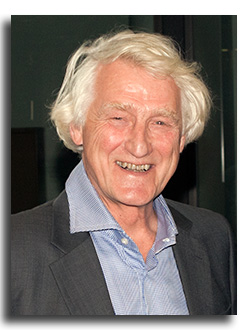
Abstract
The German parliament and the German government have decided to reduce the country’s greenhouse gas emissions by 2050 by at least 80%. Important additional milestones are to generate 35% or 80% of the electricity via the conversion of renewable energy sources by 2020 and 2050 respectively. Furthermore (later) it was decided to phase out nuclear energy conversion in Germany until 2022.
This transition of the energy supply system – in German: “Energiewende” – is in full swing. E.g. today 25% of the country’s electricity demand is generated from renewable sources (wind, solar, hydro and biomass). On the other hand the political discussion concerning in particular the distribution of the cost of the “Energiewende” is getting fierce.
From a technological point of view no principle problem hindering the transformation process has been identified. But the technological/economic optimisation of the transformation process is still an open question.
The talk will address: (i) cost reductions in electricity from renewable sources, (ii) market introduction strategies for energy from renewable sources, (iii) challenges in establishing smart grids (load and generation management, energy storage, upgrading of the energy distribution system), (iv) ideas for an optimisation of the future energy system of Germany and (v) visions on large area (inter-) continental energy supply systems.
Click here to see all available video seminars.
Click here to go to the SPREE HOMEPAGE.
Brief Bio
In 1974, Luther became professor of physics at the newly founded University of Oldenburg. In the beginning of the 1980s, his scientific interest shifted towards renewable energy sources, in particular solar power. In 1987, he became dean of the physics faculty at this university.
In 1993, he accepted a call to become professor of solid-state physics at the University of Freiburg in Southern Germany and head of the Fraunhofer Institute for Solar Energy Systems ISE in this city at the same time. He succeeded Adolf Goetzberger in these functions. In the following years, Luther established this institute as the largest research center for solar energy in Europe. During his tenure, various solar cells with world-record characteristics at the time were developed at ISE:
Polycrystalline silicon solar cells with 20.3% conversion efficiency
monocrystalline III-V heterojunction compound semiconductor solar cell with 35% conversion efficiency for concentrator applications
monocrystalline silicon solar cell flexible wafer with only 37 micrometer thickness and 20.2% conversion efficiency.
Professor Luther retired from ISE in 2006. In 2008, he was asked by the Government of Singapore to set-up and head the newly founded Solar Energy Research Institute of Singapore (SERIS). In 2012, he returned to Germany, where he is director emeritus of ISE.
Bio via Wikipedia
